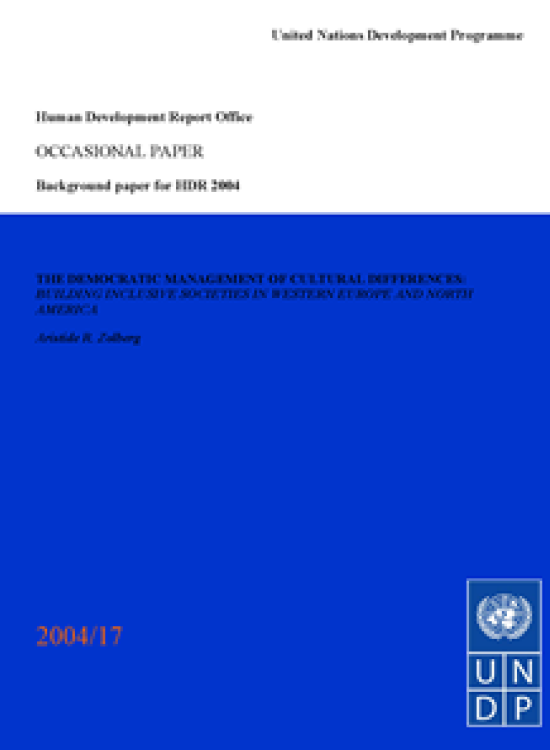The Democratic Management of Cultural Differences
Building inclusive societies in Western Europe and North America

Download Report by Language
Document
hdr2004aristidezolberg.pdf
(366.04 KB)
Citation
Zolberg, Aristide R.. 2004. The Democratic Management of Cultural Differences: Building inclusive societies in Western Europe and North America. New York.
The Democratic Management of Cultural Differences
Building inclusive societies in Western Europe and North America
Posted on: January 01, 2004
Much of the debate over the impact of recent immigration in Western Europe and among its overseas offsprings on social cohesion and political stability rests on a profound misunderstanding: contrary to re-writings of history that represent cultural diversity as a departure from the norm, in reality heterogeneity was the more usual state of affairs, and the developmental path of the countries in question was shaped by the conflicts to which this gave rise as well as the resulting settlements. Although most of the societies in question consider themselves longestablished “nations,” it should be remembered that although the striving to elaborate distinct proto-national cultures built around the myth of a common descent from ancient ancestors and expressed by way of a distinct language originated in the kingdoms of England and France as early as the thirteenth century, it was not fulfilled until the late nineteenth, and in most cases quite imperfectly, as the resulting states remained retained sizeable territorially concentrated (i.e., regional) population groups with distinctive “ethnic” identities, often based on language -- notably Bretons, Alsatians, and Corsicans in France; Scots, Welsh, and Irish in the United Kingdom; Catalans and Basques in Spain. Another major source of difference was religion. The rulers of Spain and Portugal expended considerable effort in the fourteenth and fifteenth centuries on eliminating the remaining islands of Muslim and Jewish culture, reconstructing differences of faith into differences of “blood” and pursuing policies that resulted in effect in “ethnic cleansing”.

